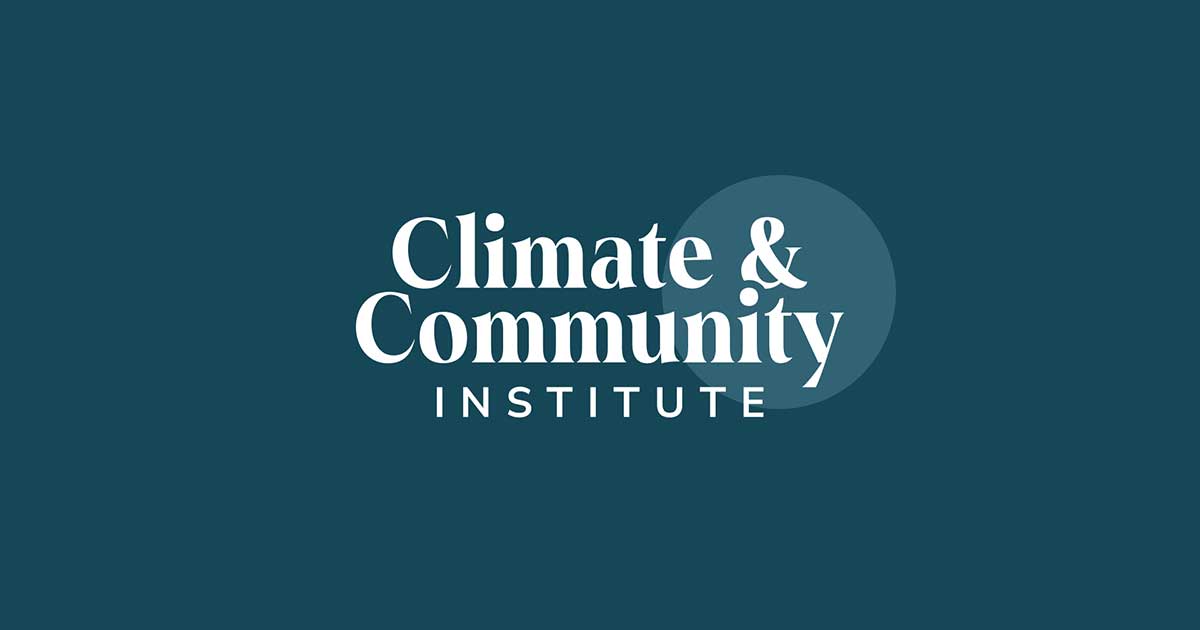A critical school finance syllabus
This summer I’ll be teaching a seminar on Critical School Finance at Teachers College, in the Philosophy and Education department (where I got my doctorate). The course has been in the works for awhile, and I’ve taken the research approach: what are the readings that I think encompass the universe of philosophical-critical-theoretical approach to school finance?
I settled on about twelve topics, each of which have a handful of readings: the framework itself; “pedagogical styles”: how to learn, teach, and study school finance; quantities: thinking about numbers and their use in production of knowledge about finance; “ethics, equity, equality, economics”: a monster category that thinks through these concepts and approaches so common in the space but rarely critiqued; race; Marxism; critical finance studies; bonds; facilities; pensions; and green finance.
This week I’m sending along the citations, along with others I found in the philosophy of public finance generally that I couldn’t fit in anywhere. Some of the readings have links but if you want copies of texts let me know and I send some along.
And if you’re in NYC and in graduate school and want to join the course, you can enroll through the consortium!
The Framework (Day 1)
Horkheimer, M. (1972). Traditional and critical theory. Critical theory: Selected essays, 188-243. PDF.
Fitzgerald, R. (2015). Philosophy Rather than Finance: Redirecting the Discourse Concerning Inequitable School Funding in Illinois. Philosophical Studies in Education, 46(1), 52–61.
Martínez, D. G. (2021). Interrogating social justice paradigms in school finance research and litigation. Interchange, 52(2), 297-317.
Owings, W. A., Kaplan, L. S., & Whitfield, A. (2022). A commentary on critical resource theory: Increasing resource equity in low-income schools and beyond. Journal of Education Finance, 47(3), 324-338.
Ward, J. G. (1987). An inquiry into the normative foundations of American public school finance. Journal of Education Finance, 12(4), 463-477.
Rodriguez, G. M., & Rolle, R. A. (Eds.). (2013). “Introduction.” To what ends and by what means: The social justice implications of contemporary school finance theory and policy. Routledge.
Backer, D. I., & Cyna, E. (2024). Critical School Finance. Journal of Educational Administration and History, 1-21.
Backer, D. I. (Forthcoming). Critical School Finance: Four Tenets. In Encyclopedia of Social Justice and Education. Bloomsbury Press.
Pedagogical Styles (Day 2)
Jones, C. (2016). The world of finance. diacritics, 44(3), 30-54.
BenDavid-Hadar, I. (2014). Analyzing school finance policy: Beyond a quantitative approach. International Journal of Public Administration, 37(5), 271-280.
Burbules, N. C., & Abowitz, K. K. (2008). A situated philosophy of education. Philosophy of Education Archive, 268-276.
Ippoliti, E. (2022). Why Finance Needs Philosophy (and Vice Versa): Some Epistemic and Methodological Issues. Foundations of Science, 27(3), 957-974.
Rancière, J. (1991). The Ignorant Schoolmaster: Five Lessons in Intellectual Emancipation. Stanford University Press.
Lebenthal, J., & Kanner, B. (2006). Confessions of a Municipal Bond Salesman. John Wiley & Sons.
“Cut, Fire, and Close,” Have You Heard Podcast. https://podcasts.apple.com/us/podcast/182-cut-fire-close/id1080145136?i=1000665447705
Quantities (Day 3)
Tabron, L. A., & Thomas, A. K. (2023). Deeper than wordplay: A systematic review of critical quantitative approaches in education research (2007–2021). Review of Educational Research, 93(5), 756-786.
Desrosières, A. (1998). The politics of large numbers: A history of statistical reasoning. Harvard University Press, Introduction.
Davis, L. J. (1997). Constructing normalcy. The disability studies reader, 3, 3-19. PDF.
Lazarsfeld, P. F. (1961). Notes on the history of quantification in sociology--trends, sources and problems. Isis, 52(2), 277-333.
Garvey, J. C., & Huynh, J. (2024). Quantitative criticalism in education research. Critical Education, 15(1), 74-90.
Moore, M. H. (2014). Public value accounting: Establishing the philosophical basis. Public administration review, 74(4), 465-477.
Backer, D. I. (2024). “Education finance, Statistics, and Philosophy.” Lecture to the Colloquium of the Program in Philosophy and Education, Teachers College.
Ethics, Equity, Equality, Economics (Day 4)
Varoufakis, Y. (2002). Foundations of economics: A beginner's companion. Routledge. Chp. 2 + Chp. 9.
Gilead, T. (2018). Equality and Equity in Education Finance: A Conceptual Analysis. Education Finance, Equality, and Equity, 167-179.
Midkiff, B., & Houck, E. A. (2018). Gender as a useful category for school finance. Leadership and Policy in Schools, 17(4), 541-567.
Martinez, D. G., Jiménez-Castellanos, O., & Begay, V. H. (2019). Understanding Navajo K–12 public school finance in Arizona through tribal critical theory. Teachers College Record, 121(5), 1-34.
Baker, B. D. (2021). Educational inequality and school finance: Why money matters for America's students. Harvard Education Press, chps. 1 - 4, and chp. 7.
BenDavid-Hadar, I. (2018). School finance policy and justice. Education finance, equality, and equity, 19-37.
Race (Day 5)
Green III, P. C., Baker, B. D., & Oluwole, J. O. (2020). School finance, race, and reparations. Wash. & Lee J. Civ. Rts. & Soc. Just., 27, 483.
Gerrard, J., Sriprakash, A., & Rudolph, S. (2022). Education and racial capitalism. Race Ethnicity and Education, 25(3), 425-442.
Cyna, E. (2023). Paper Trails: Exposing Racism in the History of School Finance. History of Education Quarterly, 63(4), 467-491.
Bell Jr, D. A. (1980). Brown v. Board of Education and the interest-convergence dilemma. Harvard law review, 518-533.
Marxism (Day 6)
England, R. W. (1985). Public school finance in the United States: Historical trends and contending interpretations. Review of Radical Political Economics, 17(1-2), 129-155.
Carnoy, M. (1982). "Education, economy and the state." In Cultural and economic reproduction in education (p. 79-126). Routledge. Education, Economy, the State PDF
Mau, S. (2023). Mute compulsion: A Marxist theory of the economic power of capital. Verso books, Introduction, Chp. 5 and Chp. 6.
McCarthy, M (2024). The Master’s Tools. Verso, Chapter 1.
Backer, D. (2020). School funding inequality in Pennsylvania: A base-superstructure analysis. Pennsylvania Educational Leadership Journal.
Critical Finance Studies (Day 7)
Bay, T., & Schinckus, C. (2012). Critical finance studies: An interdisciplinary manifesto. Journal of Interdisciplinary Economics, 24(1), 1-6.
Winner, Langdon. "Do artifacts have politics?." In Computer ethics, pp. 177-192. Routledge, 2017.
Butler, J. (2015). Performative agency. In The Limits of Performativity (pp. 10-24). Routledge.
Borch, C. (2020). Introduction: What is Critical Finance Studies?. In The Routledge Handbook of Critical Finance Studies (pp. 1-25). Routledge.
Muniesa, F. (2014). The provoked economy: Economic reality and the performative turn. Routledge, Introduction - Chapter 2.
Gibson-Graham, J. K. (1997). The end of capitalism (as we knew it): A feminist critique of political economy. Capital & Class, 21(2), 186-188.
Tooze, A. (2024). “Polycrisis and the Fraying of U.S. Hegemony,” Hans Maeder Lecture. (And accompanying blog post.)
Tooze, A. (2016). “The Crisis: The Unfixing of the Economy?” URL: https://adamtooze.com/wp-content/uploads/2016/03/Tooze-Unfixing-the-Economy-Revised.pdf
Modern Money (Day 8)
Kelton, S. (2020). The deficit myth: Modern Monetary Theory and how to build a better economy. Hachette UK. Introduction and Chapter 1. PDF.
Ferguson, S. (2018). Declarations of dependence: money, aesthetics, and the politics of care. U of Nebraska Press, Introduction.
Feinig, J. (2020). Toward a moral economy of money? Money as a creature of democracy. Journal of Cultural Economy, 13(5), 531-547.
Konings, M. (2024). “The Modern Monetary Tangle.” boundary 2. URL: https://www.boundary2.org/2024/12/martijn-konings-the-modern-money-tangle-an-introduction/
Bonding and Debt (Day 9)
Sbragia, A. (1975.) The municipal money chase: the politics of local government finance. Routledge, Chapters 4 and 6. PDF
Wozniak, J. T. (2017). Towards a rhythmanalysis of debt dressage: Education as rhythmic resistance in everyday indebted life. Policy Futures in Education, 15(4), 495-508.
“School Debt: The Great Unequalizer,” Eleni Schirmer (2023).
Graeber, D. (2018). Debt, service, and the origins of capitalism. Lecture, June, 9, 2018. PDF.
Kirkpatrick, L. O. (2016). The new urban fiscal crisis: Finance, democracy, and municipal debt. Politics & Society, 44(1), 45-80.
“Overreading into Underwriting,” Center for Public Enterprise. https://publicenterprise.org/overreading-into-underwriting-part-3/
“Cancel Wall Street.” Action Center for Race and the Economy. https://acrecampaigns.org/wp-content/uploads/2020/09/CancelWallStreet_4-Sep2020.pdf
Backer, D. I., & Royal, C. (2024). Toxic finance: underinvestment in Philadelphia’s school buildings, 1993–2021. Journal of Educational Administration and History, 1-18.
Facilities (Day 10)
Rivera, M. D. (2018). Paying for financial expertise: privatization policies and shifting state responsibilities in the school facilities industry. Journal of Education Policy, 33(5), 704-737.
Anderson, F. (2023). “Teaching Debt Pollution in Schools.” URL: https://rethinkingschools.org/articles/teaching-debt-pollution-in-schools/
Ford, D. (2014). "Spatializing Marxist educational theory: School, the built environment, fixed capital and (relational) space." Policy Futures in Education 12, no. 6: 784-793
Rivera, M. D. (2016). Inequity and privatization in school district facilities financing: A mixed methods study. University of California, Berkeley, Introduction and Conclusion.
Ford, D. R. (2015). The pneumatic common: Learning in, with and from the air. Educational Philosophy and Theory, 47(13-14), 1405-1418.
Pensions (Day 11)
Glass, M. R., & Vanatta, S. H. (2021). The frail bonds of liberalism: Pensions, schools, and the unraveling of fiscal mutualism in postwar New York. Capitalism: A Journal of History and Economics, 2(2), 427-472.
Blackburn, R. (2002). Banking on death: or, investing in life: the history and future of pensions. Verso Books, Introduction.
Smith, S. R. (2022). Well-Being, Pain and Parfit: Time, Self-Interest and Pensions Policy. In The Ontology of Well-Being in Social Policy and Welfare Practice (pp. 63-91). Cham: Springer International Publishing.
McCarthy, M. A. (2017). Dismantling solidarity: Capitalist politics and American pensions since the new deal. Cornell University Press, 16-35. PDF.
Vanatta, S. H. (2024). The financialization of US public pension funds, 1945–1974. Review of Social Economy, 82(2), 261-293.
Mittal, V. (2024). Desperate capital breeds productivity loss: Evidence from public pension investments in private equity. Available at SSRN 4283853.
Green Finance (Day 12)
Partridge, C. C. (2019). Green Municipal Bonds and the Financing of Green Infrastructure in the United States (Doctoral dissertation, UCL (University College London)). PDF.
Gabor, D., & Braun, B. (2025). Green macrofinancial regimes. Review of International Political Economy, 1-27.
Doganova, L. (2024). Discounting the future: The ascendancy of a political technology. Princeton University Press, Introduction, Chapter 1, Conclusion.

School Solar Ownership Models - Climate and Community Institute
Public schools anchor entire communities. Schools are where students spend the majority of their childhoods outside of the home, workplaces for more than 6 million people, …

Funding a Green New Deal for Public Schools - Climate and Community Institute
Public schools are central to America’s deeply held ideals—they are where we incubate democracy and cultivate empathy. They are the centers of our communities. But our …
Backer, D. I. (2025). “The Problem of Educational Power.” Philosophy of Education 2025.
Backer, D. I., & Rodriguez, A. D. (2025). Movements at the fiscal/monetary crossroads: Financing a Green New Deal for schools in Philadelphia. Journal of Urban Affairs, 47(1), 87-101.
Backer, D.I. (2023). "The IRA and Public Schools," Phenomenal World. Published online: https://www.phenomenalworld.org/analysis/the-ira-and-public-schools/
UnDauntedK12, Elective Pay Database. URL: https://www.undauntedk12.org/elective-pay-database
Further Reading
Sandberg, J., & Warenski, L. (Eds.). (2023). The Philosophy of Money and Finance. Oxford University Press.
Ippoliti, E. (2022). Why Finance Needs Philosophy (and Vice Versa): Some Epistemic and Methodological Issues. Foundations of Science, 27(3), 957-974.
Musgrave, R. A., & Peacock, A. T. (Eds.). (1958). Classics in the theory of public finance. Springer.
Buchanan, J. M., & Musgrave, R. A. (1999). Public finance and public choice: two contrasting visions of the State. MIT press.
Philosophy of Money and Finance, Stanford Encyclopedia of Philosophy
McGee, R. W. (2003). The philosophy of taxation and public finance. Springer Science & Business Media.
Gaffney, M. (1998). The Philosophy of Public Finance. The Losses of Nations: Deadweight Politics Versus Public Rent Dividends, 175-205.
McGee, R. W. (2003). Taxation and public finance: A philosophical and ethical approach. Available at SSRN 461340.
Tresch, R. W. (2022). Public finance: A normative theory. Academic Press.
Pollock, A. J. (2019). Finance and Philosophy: Why We’re Always Surprised. Paul Dry Books.
Block, F., & Hockett, R. (Eds.). (2022). Democratizing finance: Restructuring credit to transform society. Verso Books.
Gibson-Graham, J. K., Cameron, J., & Healy, S. (2013). Take back the economy: An ethical guide for transforming our communities. U of Minnesota Press
Gibson-Graham, J. K. (2006). A postcapitalist politics. U of Minnesota Press.